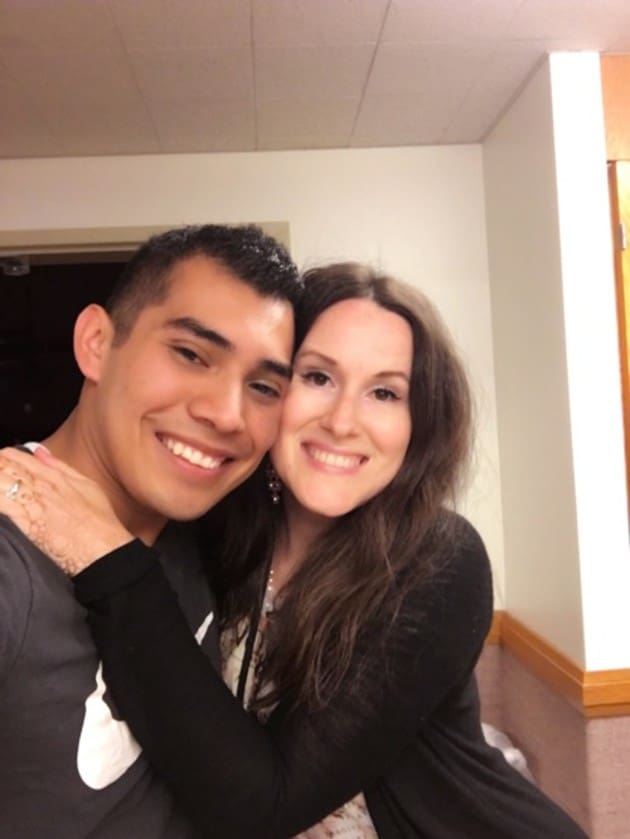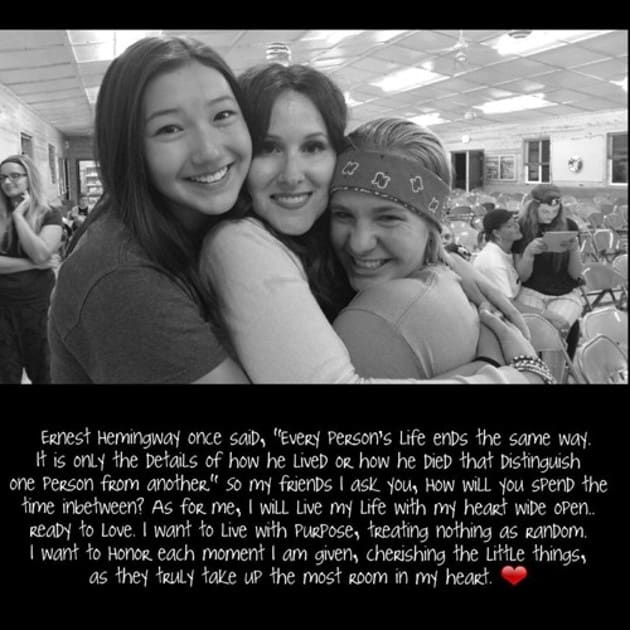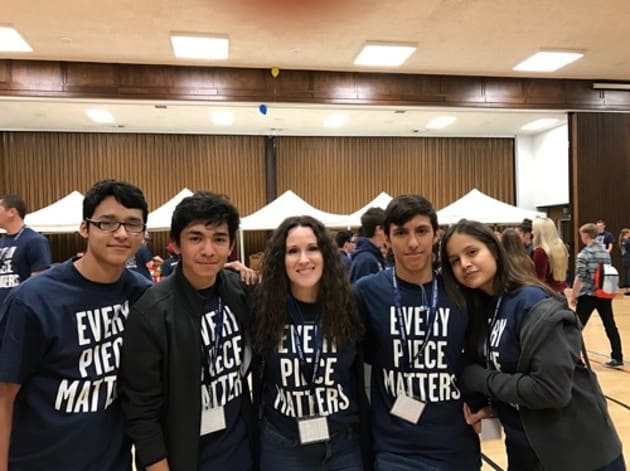I come from a long line of broken women and bad men. By the time I was 14, I had experienced so much suffering and abuse that I was tired of being scared all of the time. One day I packed a bag and headed for the city. I didn't know where I would go, or what I would do ... but I knew that I had to get out of there. No one came looking for me, either.
By nature, I am an introvert. I was always quiet and reserved as a child, never asking for much. Needing things got me into trouble. I learned to stay in shadows to avoid that trouble. Being homeless, however, it taught me how to be an extrovert. I knew that if I wanted a meal or a place to sleep, I had to learn to make friends quickly. I learned to read people well and to listen when they talked. I always knew when it was time leave. It was around the time that parents started asking,
"Do her parents know she's been here for three days?"
"Should I call her mother?"
"Why is she still here?"
Yep, time to go.
Making friends became my job. Getting food and shelter was how I got paid.
When you aren't old enough to work, you become very resourceful.
As soon as I was of legal working age, I held down a job and went to school. Working was never a problem for me. I was an Iowa farm girl. I knew how to work. I took any job I could get - mostly fast food or as a waitress. It was quick money, I had somewhere to eat, and I was warm for my whole shift.
There were times where there just wasn't a friend to be made.
I would sleep anywhere and everywhere I could find.
There was one night in particular that's burned into my memory.
It was right in the middle of a harsh Midwest winter, and it was frigid outside. I had no coat. I just had this basketball sweatshirt with my name on the back of it. Man, I loved that sweatshirt so much. I had bought it with the money I earned de-tasseling corn for a local farmer a few summers back. Something about that sweatshirt made me feel normal - like I was just this kid on a basketball team who had a great life and was not a homeless beggar. That cold, winter night I walked up and down the streets of Council Bluffs, Iowa, not sure what to do. I remembered that one of the friends I'd stayed with had recently moved. I wondered if the house was still vacant.
In complete desperation, I ran to the house and found that it hadn't been rented yet. I went to the back, scaled the house, popped open the window and crawled inside. To my despair, the heat was turned off. It was still so cold. I looked around for anything that had been left behind to cover myself up with. Nothing remained, so I found a carpeted room in the middle of the home and laid down. I rolled up in a ball and shoved my knees as far up my sweatshirt as I could. I put my hands inside the sleeves in an attempt to warm them to any degree. I sat in the dark and cried.
I felt so alone in the world. My hands hurt. My stomach was so hungry. The weight of my situation was so heavy. As I sobbed that night, I could see my breath in the dark, another painful reminder of how cold it was even inside the house. Exhaustion set in. I could feel my body start to succumb to how tired it was. My last thoughts that night were wondering if I would freeze to death. If this spot in the carpet would be my final resting place.
Would this be the way that I died? I wondered if there would be a funeral. I couldn't think of anyone who would come.
How would they even know who I was if no one was looking for me? I was afraid to go to sleep, not certain that I was going to wake up. I was just so tired.
I woke up the next morning to the sound of someone entering the back door. I was startled and shot up like a rabbit. I heard them talking. It was the landlord showing the house. They saw me, and I ran out the front door in shame. Shame that they saw my need. Shame that they knew. Shame that I had broken into his home because I had nowhere to go. I ran for three blocks before I stopped. That adrenaline was the first warmth I had felt in a long time. The tears came back.
At the time, I didn't even know I was pregnant with my first child. Being homeless was becoming very inconvenient. Things that people don't realize:
You can have a baby at 16, but you can't sign a lease.
You can't buy a car. You can't turn on your utilities. You can get welfare, but technically I made too much money. In time, I made enough money to support myself to some degree, but none of it mattered because I wasn't legal. I found a few friends that let me stay here and there, but there was no stability. Everything relied on me never being underfoot and always perfect. I always tried to disappear or remain in the room of the friend I was staying with. I did this somewhat in hopes that they would forget I was there, and I'd get to stay longer.
My survival was completely based on the generosity of others creating space for me in their life.
At seventeen, hoping for a miracle, I reunited with my child's father and found myself pregnant again. Upon this news, my boyfriend left us for his full-ride scholarship.
I had no choice anymore. I had to keep Anthony safe. He would not survive freezing temperatures. I went to a homeless shelter which broke the rules and let me stay there.
I can't tell you how humbling it was to walk through those doors with one hand on my pregnant belly and the other holding the hand of my one year old - especially knowing that this was all I had for them, and it wasn't even mine to give.
I would stay in this homeless shelter until the day I turned 18.
In the homeless community there are two subcultures. There are vagrants, and there are homeless.
Vagrants are those who have accepted homelessness as their way of life. They come to shelters for a meal and a bed. They have no interest in rehabilitation or getting off the streets. Something in their way of thinking shifted in life. Homelessness grants them anonymity. They are able to escape expectations, responsibilities and heartbreak. In my experience, most have some mental illness. They seek refuge in friends who need that escape, too. A high percentage of them are riddled with addiction because that's the way they truly get to "disappear." When the generosity of others wanes or the drugs run out, they aren't above committing crimes or hurting you to steal what you've got.
The homeless are the rest of us. I spent four years in that world, and I can tell you firsthand who these people are. They are people who were in similar situations to mine, either experiencing teen pregnancy or escaping abuse at home. Some were battered women who took their kids and ran. Some had lost jobs, and for others, medical bills were the cause of their financial demise. Some were people that had been shunned by the world for one reason or another and had just shut down.
We were all ashamed to be there.
Deep shame. The kind that makes your soul quake. At first, we all just tried to stay in our rooms. It was easier to not have to look people in the eye. During meal and chore times, we were forced to interact. Sometimes the thought of having to face people made me really not hungry. I only went into the kitchen because my baby needed to eat.
One evening during another awkward meal at the dinner table, I got brave and asked the person sitting next to me, "So what are you in for?" The whole table laughed, and we all started to open up about what had gotten us there - the roads we had traveled.
Every single one of us wanted a chance to say that we were more than just our circumstances.
It helped with the shame. When people came in to volunteer, it made us all uncomfortable in a sense. We scattered like roaches. We didn't want to be seen or treated as less. Some of that stemmed from how we viewed ourselves, being in one of the weakest moment of our lives. When we had chores that brought us face to face with staff or volunteers, we were quick to tell our stories. We didn't want to be lumped in with vagrants. We didn't put ourselves above the vagrant population, but it was vital to our long-term survival for those around us to know that WE WANTED OUT!
Our chances at that point relied solely on people's willingness to see beyond our circumstances.
We needed someone willing to open a few doors for us - doors we couldn't open for ourselves, despite our best efforts.
I signed the lease for my first apartment on my 18th birthday. I walked through that door with pride. I owned nothing but the two towels assigned to me by the homeless shelter, along with three children's books given to me that I read to Anthony every night. I bet the people who donated those books had no idea how much I'd come to treasure them. They were three of the five things that I owned. My apartment wasn't much by the world's view, but those were the most beautiful four walls I had ever seen. They were my four walls.
I wish I had the time and space to tell you the whole story, because the first 20 years were awful and this post makes it look like Candyland. It got so much worse. I only give you this rare and very private view of my life because I want people to see that struggle ... has a face. It's my face.
For months I have watched cities consistently reject bringing homeless resource centers into their communities.
Every meeting has had the same result, each proposed site being shot down with the same vigor. Rooms filled with anger, resentment and awful words spoken. This happens in cities all throughout our nation whenever the subject of homelessness comes up.
The heart of the message is always the same: "We don't want you."
I can't help but feel the sting of that sentiment. I can guarantee that for some of the people walking the halls of those homeless shelters, they've heard those words before ... and it's part of what landed them there.
There is also a very important part of the story that you aren't hearing - the end.
After struggle ... comes triumph. I normally wouldn't give my resume (I'm not about that life), but I think it's imperative in this instance because people need to understand that someone's beginning does not determine their ending.
I went on to have a beautiful life. I worked HARD. I fought my way OUT of poverty. I worked multiple jobs and never turned my nose up at an opportunity to further myself. All of those desperate times shaped my character in ways you can't even imagine. It gave me the grit I needed to stare down the obstacles in my life, including myself.
People's willingness to see my potential - rather than my circumstances - gave me a chance to move on and to do beautiful things.
I outworked everyone because I wanted a good life.
I spent a long career as a director at a local hospital, where I specialized in addiction recovery, motivational workshops, marketing and strategic planning, clinical care, and sensitivity training. I was the first person in the State of Utah to achieve several National Awards for Excellence. I served as a consultant for several hospitals throughout the Intermountain West. In 2009, I walked away from my six-figure salary to stay home with my (surprise!) twins.
For several years now, I've devoted hundreds of hours to humanitarian service every month - thousands of hours per year. I spend time investing in communities around the globe. I sit with the broken. All day, every day ... I walk people out of the dark. Some of the time is spent in mentorship programs for young single mothers. Some of it is spent at the women's prison or juvenile detention centers.
I've also worked with bereavement groups. I've held dead babies in my arms while mothers wept from their unspeakable loss. Often times it's in a church. I work with men, women, and youth around the world, counseling them through abuse, addiction, marriage, suicide, grief, loss and a host of other heartbreaking circumstances. I love my life and I don't make a dime, although I have been able to help raise money for others in need. In fact, sharing a tiny bit of my story helped to earn the American Red Cross 1.2 million dollars.
I have been happily married to an incredible man for 20 years this summer.
We have eight well-educated, nurtured and loving children that go out to serve with us. That is ten people serving communities. And the generations that follow them will, too.
My son Anthony ... he's currently in the Junior Core at the Marriot School of Business, one of the top business schools in the country, highly focused on integrity in business. His education follows two years of service in South Africa, where he had the chance to lift up and offer aid to some of the world's most humble and impoverished people. My next oldest son, Andrew, has just sent in the paperwork to serve for two years as well. Upon returning, his plan is to attend medical school. My other children are too young to know their futures, but I know they will serve their communities well because it's modeled at home.
My point is that we have to look at the return investment.
I am confident in saying that it worked out for those who invested in a tiny homeless girl in the Midwest. We won't always see the ending, but that doesn't mean it isn't a beautiful one.
We have got to recognize what Charity is and what it isn't.
Charity is not going down to the homeless shelter on Thanksgiving and serving dinner, then snapping a picture for Instagram.
Charity is not being willing to help those in need, as long as they stay out of our communities. That's the worldly and human need for a social pecking order, with the elite always remaining on top. We might as well be saying, "I am fine helping you, but know your place. The only way you are welcome in my community is if you can afford to buy your own ticket."
Can we truly call that the pure love of Christ? Christ entered the world homeless, and was of humble means throughout his life. Yet his contributions are quite literally our saving grace. I think his view on this subject was pretty clear:
"For I was an hungered, and ye gave me no meat: I was thirsty, and ye gave me no drink: I was a stranger, and ye took me not in: naked, and ye clothed me not: sick, and in prison, and ye visited me not... Inasmuch as ye have done it unto one of the least of these my brethren, ye have done it unto me."
Good people of the world, I challenge us to search our consciences - to channel our Christian hearts. Good deeds are not done by walking into a church. They are done when you walk outside of that church and help others.
We have got to change this "No Room in the Inn" mentality.
There's room if we make room. True charity is sacrifice. True charity is giving to the point that it hurts a little bit, or sometimes an awful lot. That's the very essence of Christianity: loving sacrifice. It's what shapes our character and defines our hearts. I beg of our communities to share in the sacred responsibility to serve our most needy.
Stephen Colbert said it best:
"If this is going to be a Christian nation that doesn't help the poor, either we've got to pretend that Jesus was just as selfish as we are, or we've got to acknowledge that he commanded us to love the poor and serve the needy without condition, and then admit that we just don't want to do it."
Editor's note: This article was originally published on Dawn Armstrong's website. It has been republished here with permission.




